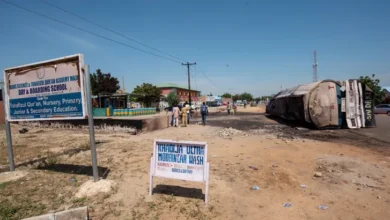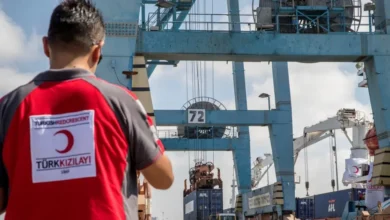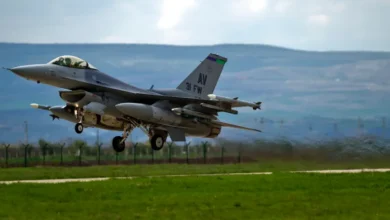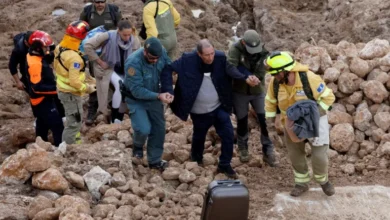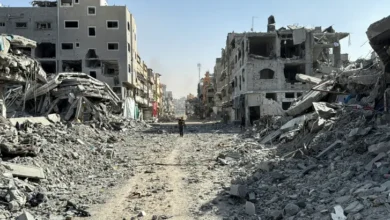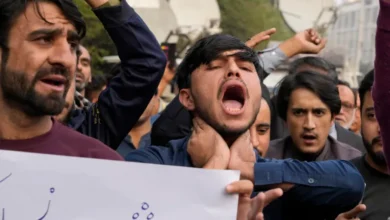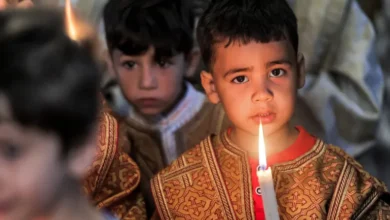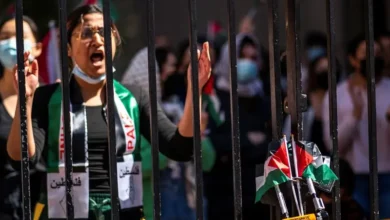‘Our pain is immense’, says Turkish earthquake survivor
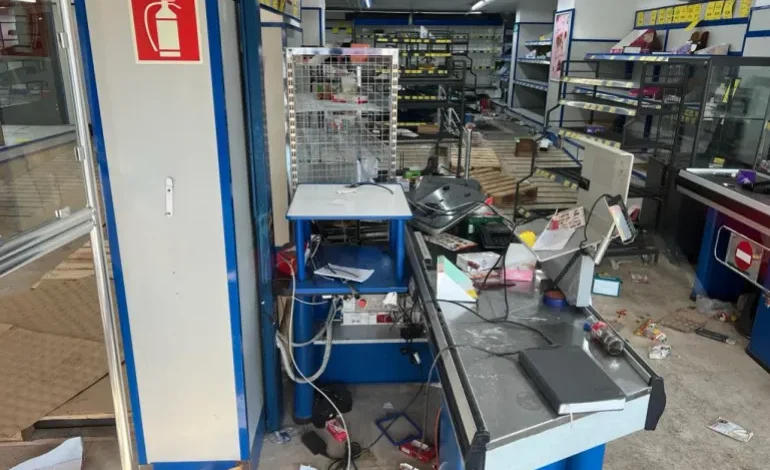
Serizan Agbas, 61, has been sleeping in a chair in the garden of a school since the earthquakes devastated the southeastern region of Turkey on February 6.
Agbas’s apartment block is still standing but was deemed not safe to stay in. So she stays out in the open and shares fire and food with rescuers.
“Our pain is immense. I have only 15 lira [$0.80] in my pocket, I don’t even have a cigarette,” she told Al Jazeera. “I have nothing to lose now, so I’m not afraid.”
For 30 years, Agbas ran a textile shop, but the earthquake destroyed the building it was in and she had no insurance. Not knowing what else to do, she comes to the building every day anyway, sometimes she meets Ozhan Komurcu there, who used to run a carpet shop in the building too.
Fourteen people were saved from the collapsed building, they told Al Jazeera. But they believe more than 100 people died in it. There is no water or functioning sewage system, they added, and only half the city has electricity and people are starting to worry about diseases spreading.
The massive earthquakes on Monday – with magnitudes of 7.8 and 7.6 – have so far killed more than 24,000 people and wounded more than 80,000 others in southeastern Turkey. More than 6,400 buildings have collapsed, according to authorities.
Agbas thinks most of the buildings that either collapsed or became uninhabitable following the quakes were built in the last five years and says anger is growing over the construction.
“The builders are cheats – they make something shiny and luxurious looking, but it’s really cheap and weak,” she said.
On Tuesday, the Turkish government declared a three-month state of emergency in 10 provinces along its southern border with Syria.
Turkish President Recep Tayyip Erdogan last week acknowledged “shortcomings” in the state’s response to the quakes, adding that severe weather had made rescue efforts more difficult and that the efforts were now fully on track.
Concerns over looting have also been raised in the stricken areas, with state media announcing that 48 looters had been arrested across eight provinces.
Iskenderun saw a lot of looting in the first two days, Agbas and Komurcu said, but now the military has been deployed on the streets in an effort to make it safer and prevent looting.
On Tuesday, the Turkish government declared a three-month state of emergency in 10 provinces along its southern border with Syria.
Turkish President Recep Tayyip Erdogan last week acknowledged “shortcomings” in the state’s response to the quakes, adding that severe weather had made rescue efforts more difficult and that the efforts were now fully on track.
